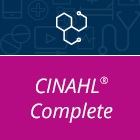Nursing & Health Sciences Research Journal
Abstract
Background: Cardiomyopathy (CMP) and heart failure (HF) are serious health conditions that impact millions of Americans, including people with Type 2 Diabetes (T2DM). The COVID-19 pandemic presented disruptions, yet it is unclear how it affected those living with T2DM and HF. This study aimed to describe the demographic and clinical characteristics of patients with T2DM and CMP who were hospitalized with acute heart failure (aHF) during the COVID-19 pandemic. Methods: Retrospective study of 288 adults with aHF between May 2020 to June 2021. Descriptive statistics were used to summarize the characteristics of adults hospitalized at a non-profit community hospital in Miami, Florida. Results: Fifty-two percent (n = 150) of the patients had T2DM, 98% were admitted via the Emergency Department, the average age was 73.4 (±14.5) years, 56% were male, 65% were White Hispanic, 20% were White, and 14% were non-Hispanic Black. Ischemic CMP (38%) and diastolic HF (26%) were prevalent in this sample. Patients with T2DM were more likely to be discharged home with home health care (45%) compared to those without T2DM (35%). The home medications reported by the patients included: diuretics (73%), beta-blockers (71%), statins or other agents (65%), Angiotensin-II Receptor Blockers (41%), antiglycemics (39%), calcium channel blockers (27%), and ACE inhibitors (13.7%). Conclusion: This study sheds light on the demographic factors in adults living with CMP, HF, and T2DM during the COVID-19 Pandemic. The prevalence of T2DM, ischemic CMP, and diastolic HF, especially among Hispanics, warrants further research to guide interventions to improve the treatment of these conditions in ethnic minorities.
Recommended Citation
Delahoz, P., Corrales, K., Cagulada, J. P., Cardona, J., Qyyum, J., Rodriguez, V., & Chang Martinez, C. (2023). Characterization of Patients with Type 2 Diabetes Admitted for Acute Heart Failure During the COVID-19 Pandemic. Nursing & Health Sciences Research Journal, 6(1), 12-24. https://doi.org/10.55481/2578-3750.1173
Creative Commons License

This work is licensed under a Creative Commons Attribution-NonCommercial-No Derivative Works 4.0 International License.


